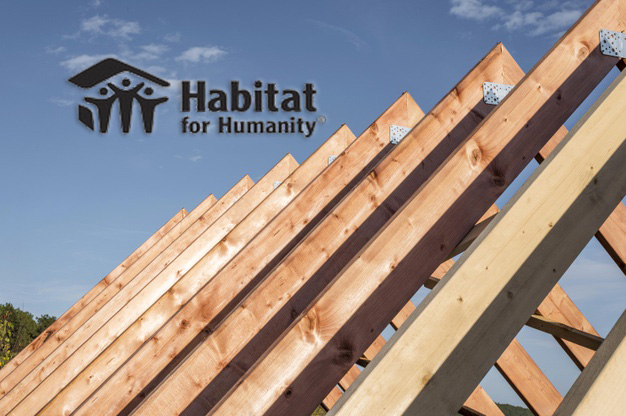
The economic turmoil caused by the COVID-19 pandemic in the past year exposed an already fragile housing infrastructure, created new home affordability challenges for many, and exacerbated existing problems for those who were already struggling.
Although the impact of the economic fallout continues to unfold and the need for safe, affordable housing has grown, Habitat for Humanity has seen considerable gains in housing policy and legislation that helps increase access for families and individuals. Local, state and federal advocacy efforts over the past two years have led to improved housing opportunities for more than 4 million people across the U.S., a milestone benchmarked by the global housing nonprofit’s Cost of Home advocacy campaign.
“As a leader in the housing industry, Habitat will continue to fight for a seat at the table in policy discussions regarding housing affordability,” said Jonathan Reckford, chief executive officer at Habitat for Humanity International. “At a time when uncertainty and instability are profound, our message has never been more important. I’m proud of our local Habitat organizations, partners, volunteers and community members for making this milestone possible, but our work is not done. While there are families in the U.S. who still spend more than 30 percent of their income on housing, policymakers must continue to prioritize housing.”
As the campaign moves closer toward its target of increasing home affordability for 10 million people, local and state Habitat organizations will continue to advocate for policies that increase the supply and preservation of affordable homes, increase access to credit, optimize land use for affordable homes, and ensure access to and development of communities of opportunity.
At the federal level, Cost of Home is focused on ensuring significant housing investments, such as the Neighborhood Homes Investment Act and the Restoring Communities Left Behind Act, are priorities for an economic recovery and infrastructure package.
To underscore the importance of partnership and coalition building in advocating for home affordability, Habitat has gathered housing experts, advocates, business leaders and policymakers for a virtual discussion on the national shift toward creating more long-term housing solutions.
The event, +You: Advocating for home affordability, will address the increasing momentum for policy solutions to address supply and preservation of homes; equitable access to credit; optimized land use for affordable homes; and access to and development of communities of opportunity. Panelists will also highlight local, state and federal policy advances and wins made through the campaign. The event will take place June 14 at 4:00 p.m. EDT.
For more information on the Cost of Home campaign and how to get involved, visit habitat.org/costofhome.
About Habitat for Humanity
Driven by the vision that everyone needs a decent place to live, Habitat for Humanity found its earliest inspirations as a grassroots movement on an interracial community farm in south Georgia. Since its founding in 1976, the Christian housing organization has grown to become a leading global nonprofit working in local communities across all 50 states in the U.S. and in more than 70 countries. Families and individuals in need of a hand up partner with Habitat for Humanity to build or improve a place they can call home. Habitat homeowners help build their own homes alongside volunteers and pay an affordable mortgage. Through financial support, volunteering or adding a voice to support affordable housing, everyone can help families achieve the strength, stability and self-reliance they need to build better lives for themselves. Through shelter, we empower. To learn more, visit habitat.org.
SOURCE Habitat for Humanity International



Chattooga Local News
TRION PUBLIC LIBRARY RECEIVES NATIONAL GRANT FOR SMALL AND RURAL LIBRARIES

Bulloch Lifestyle
41st Annual ArtsFest at Sweetheart Circle Saturday, April 20

Bulloch Public Safety
04/19/2024 Booking Report for Bulloch County

Bulloch Lifestyle
Adoptable Pet of the Week Re-Feature: Tucker

Georgia News
Kemp Signs Historic Tax Cut Package Into Law

Bulloch Public Safety
03/25/2024 Booking Report for Bulloch County

Bulloch Public Safety
04/09/2024 Booking Report for Bulloch County

Bulloch Public Safety
04/01/2024 Booking Report for Bulloch County

Bulloch Public Safety
04/08/2024 Booking Report for Bulloch County

Bulloch Public Safety
04/15/2024 Booking Report for Bulloch County



